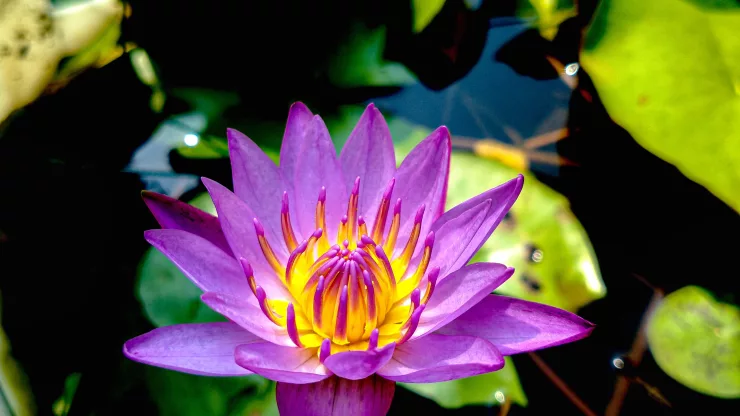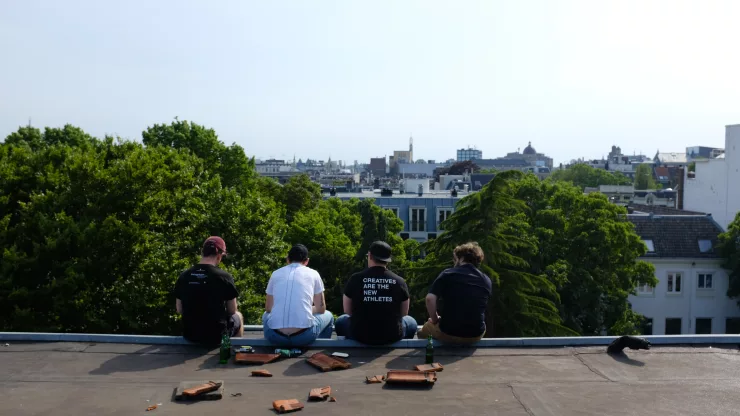Jump to Section
What Does it Mean to Be Wise?
Wisdom is often associated with age and experience, but it is not limited to those factors alone. Being wise means having a deep understanding and knowledge of oneself, others, and the world around us.
It involves making sound judgments, having good decision-making skills, and possessing practical knowledge.
Wisdom is not something that can be gained overnight, but rather it is a journey that requires a lifetime of learning, growth, and reflection.
In today’s fast-paced world, it is easy to get caught up in the hustle and bustle of daily life and forget to take a step back and reflect on our experiences.
However, if we want to become wise, we must learn to slow down and take the time to reflect on our experiences.
It is through our experiences that we gain knowledge and understanding of ourselves and the world around us. By reflecting on our experiences, we can learn from our mistakes, gain new insights, and grow as individuals.
The Importance of Learning from Experience
Experience is one of the most valuable teachers in life. It is through our experiences that we learn about ourselves and the world around us.
Every experience we have, whether good or bad, provides us with an opportunity to learn and grow. However, it is not enough to simply go through life and accumulate experiences.
To become wise, we must actively reflect on our experiences and extract the lessons that they offer.
Learning from experience requires us to be open-minded and willing to challenge our assumptions and beliefs. It also requires us to be honest with ourselves and acknowledge our mistakes and shortcomings.
By doing so, we can learn from our mistakes and become better equipped to handle similar situations in the future.
The key to learning from experience is to approach each new experience with curiosity and an eagerness to learn.
Cultivating Empathy and Compassion
Empathy and compassion are two essential qualities that are necessary for becoming wise. Empathy is the ability to understand and share the feelings of others, while compassion is the desire to alleviate the suffering of others.
By cultivating empathy and compassion, we can develop a deeper understanding of the human experience and connect with others on a more profound level.
Empathy and compassion also enable us to be more understanding and forgiving of others. They allow us to see beyond our differences and recognize the common humanity that we all share.
By practicing empathy and compassion, we can create a more harmonious and compassionate world.
The Power of Listening and Asking Questions
Listening and asking questions are two powerful tools for gaining knowledge and understanding. By listening attentively to others, we can gain insights into their perspectives and experiences.
Asking questions allows us to clarify our own understanding and gain new insights into the world around us.
However, listening and asking questions require us to be humble and willing to admit that we do not have all the answers.
It also requires us to be open-minded and willing to consider new ideas and perspectives.
By doing so, we can expand our knowledge and understanding and become wiser individuals.
Embracing Diversity and Open-Mindedness
The world is a diverse and complex place, and it is essential to embrace that diversity if we want to become wise. Embracing diversity means recognizing and valuing the differences that exist between people.
It means being open-minded and willing to consider new ideas and perspectives.
Open-mindedness is a crucial aspect of becoming wise. It requires us to be humble and willing to admit that we do not have all the answers.
It also requires us to be willing to challenge our assumptions and beliefs and consider alternative viewpoints.
By embracing diversity and open-mindedness, we can gain a deeper understanding of the world around us and become wiser individuals.
Facing Challenges and Overcoming Obstacles
Life is full of challenges and obstacles, and it is how we respond to them that ultimately determines our level of wisdom. Facing challenges requires us to be resilient and adaptable.
It also requires us to be willing to learn from our mistakes and failures.
Overcoming obstacles requires us to be persistent and determined. It also requires us to be creative and resourceful in finding solutions to the problems that we face.
By facing challenges and overcoming obstacles, we can develop the skills and knowledge that are necessary for becoming wise.
Finding Purpose and Meaning in Life
Finding purpose and meaning in life is a crucial aspect of becoming wise. It requires us to reflect on our values, passions, and goals and align them with our actions and decisions.
It also requires us to be mindful of the impact that our actions have on others and the world around us.
Finding purpose and meaning in life is a journey that requires self-reflection and introspection.
It involves asking ourselves what we want to achieve in life and what kind of impact we want to have on the world.
By finding purpose and meaning in life, we can live a more fulfilling and meaningful existence.
The Journey towards Wisdom
Becoming wise is a lifelong journey that requires a commitment to learning, growth, and self-reflection. It involves cultivating empathy and compassion, embracing diversity and open-mindedness, and facing challenges and overcoming obstacles.
It also involves finding purpose and meaning in life and aligning our actions and decisions with our values and goals.
The journey towards wisdom is not an easy one, but it is a journey that is worth taking.
By becoming wise, we can live a more fulfilling and meaningful existence and make a positive impact on the world around us.
So, let us embrace the journey towards wisdom and commit ourselves to becoming the best versions of ourselves that we can be.
FAQ
How can I cultivate empathy and compassion?
There are several ways to cultivate empathy and compassion, including:
- Practicing active listening and trying to understand others’ perspectives
- Volunteering or helping others in need
- Practicing self-compassion and treating yourself with kindness and understanding
- Engaging in acts of kindness and generosity towards others
What are some ways to embrace diversity and open-mindedness?
Some ways to embrace diversity and open-mindedness include:
- Exposing yourself to different cultures, beliefs, and perspectives
- Traveling and experiencing different ways of life
- Engaging in conversations with people who hold different viewpoints than your own
- Challenging your assumptions and beliefs and being willing to consider alternative viewpoints
How can I find purpose and meaning in life?
Finding purpose and meaning in life is a journey that requires self-reflection and introspection. Some ways to find purpose and meaning in life include:
- Reflecting on your values, passions, and goals
- Identifying your strengths and how you can use them to make a positive impact on the world
- Engaging in activities that align with your values and goals
- Finding ways to contribute to causes or issues that you care about.

With a deep passion for personal development, Ben has dedicated his career to inspiring and guiding others on their journey towards self-improvement.
His love for learning and sharing knowledge about personal growth strategies, mindfulness, and goal-setting principles has led him to create My Virtual Life Coach.
Contact Ben at [email protected] for assistance.




